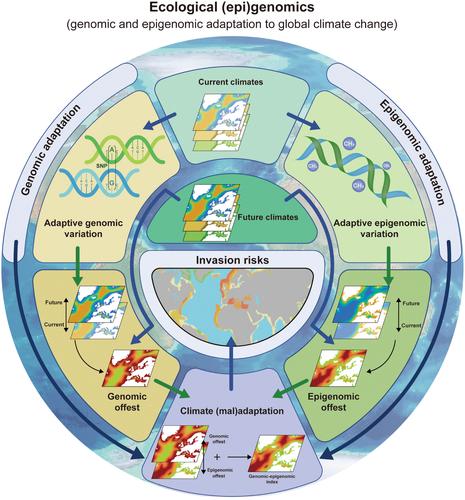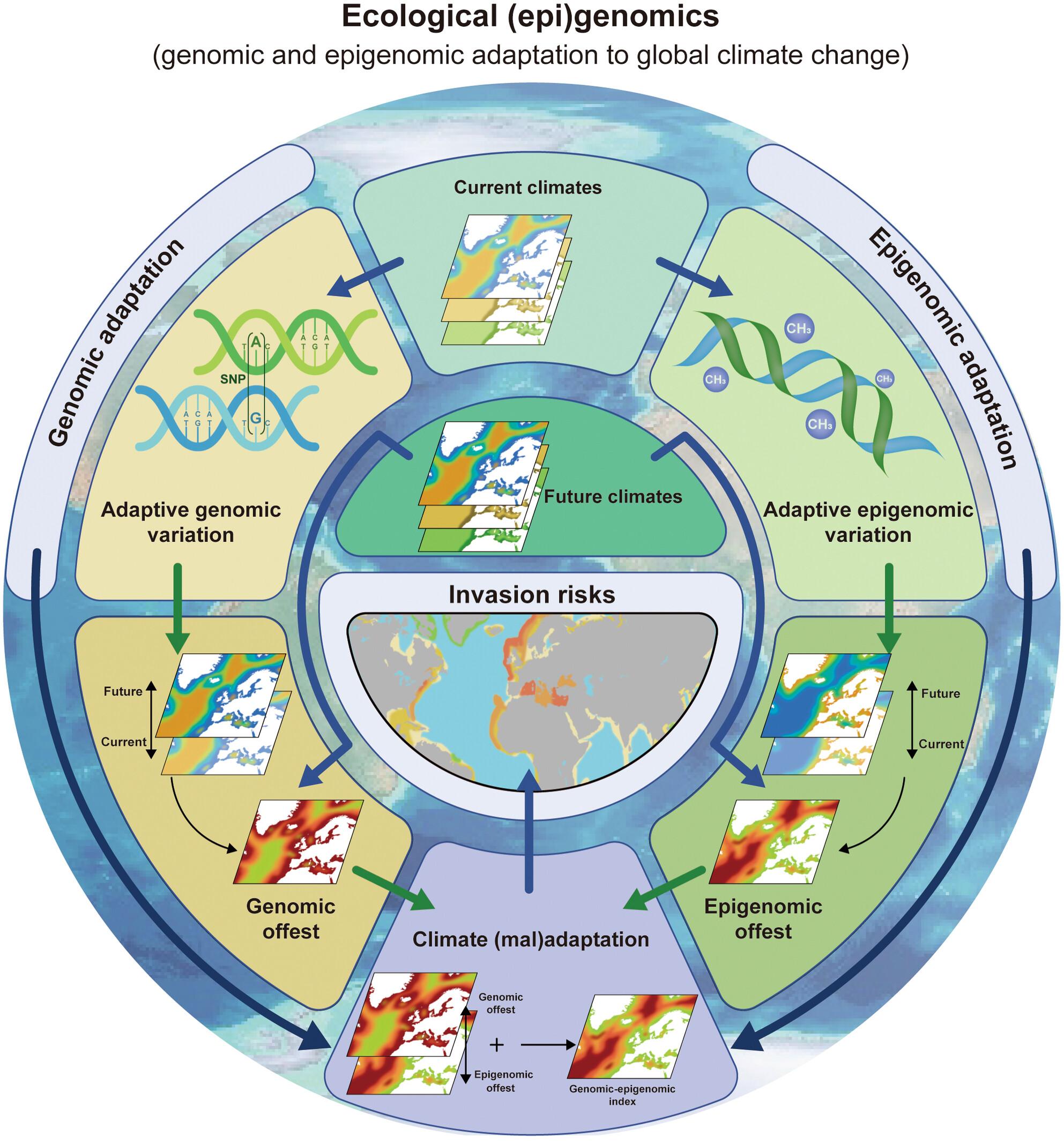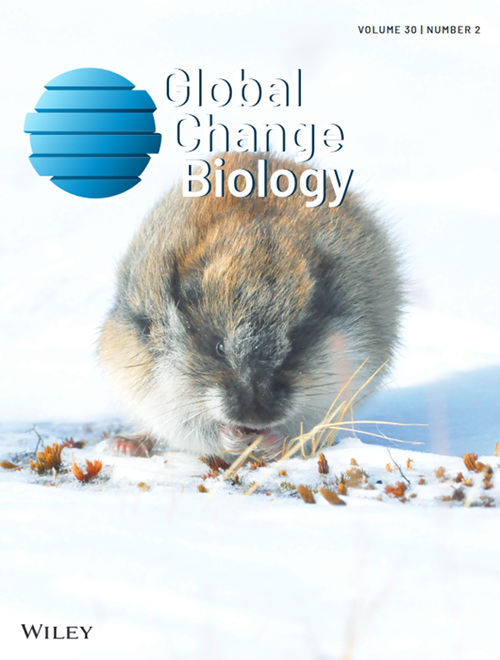Multi-Omics Inform Invasion Risks Under Global Climate Change
Abstract
Global climate change is exacerbating biological invasions; however, the roles of genomic and epigenomic variations and their interactions in future climate adaptation remain underexplored. Using the model invasive ascidian Botryllus schlosseri across the Northern Hemisphere, we investigated genomic and epigenomic responses to future climates and developed a framework to assess future invasion risks. We employed generalized dissimilarity modeling and gradient forest analyses to assess genomic and epigenomic offsets under climate change. Our results showed that populations with genomic maladaptation did not geographically overlap with those experiencing epigenomic maladaptation, suggesting that genomic and epigenomic variations play complementary roles in adaptation to future climate conditions. By integrating genomic and epigenomic offsets into the genome–epigenomic index, we predicted that populations with lower index values were less maladapted, indicating a higher risk of future invasions. Native populations exhibited lower offsets than invasive populations, suggesting greater adaptive potentials and higher invasion risks under future climate change scenarios. These results highlight the importance of incorporating multi-omics data into predictive models to study future climate (mal)adaptation and assess invasion risks under global climate change.



 求助内容:
求助内容: 应助结果提醒方式:
应助结果提醒方式:


